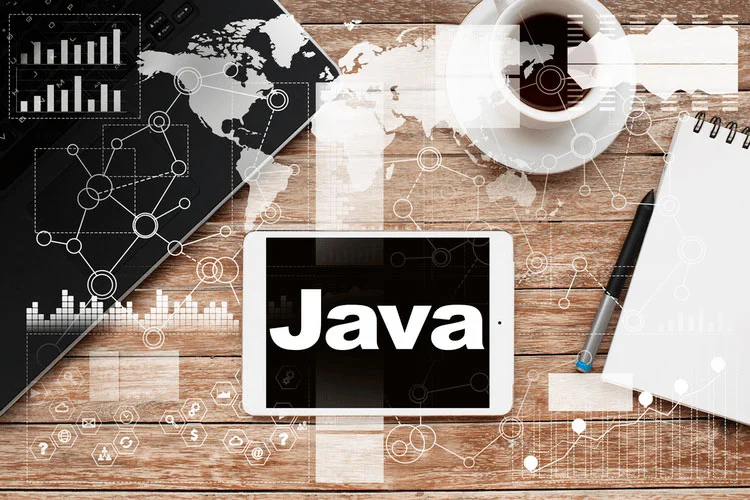Ai In The Manufacturing Sector: Unlocking Its Influence
Additionally, natural language processing aids in supplier communication and even extracting data from digital documents. For instance, machine learning algorithms can immediately identify deviations from quality specs. Predictive upkeep techniques use AI to detect potential equipment failures before they occur. Applications like these scale back human error and elevate adherence to quality standards. Furthermore, AI’s impact extends to predictive upkeep inside manufacturing. By analyzing real-time knowledge from sensors and equipment, machine learning algorithms precisely predict equipment malfunctions, advising preemptive upkeep strategies.
Generative AI can additionally be poised to rework manufacturing operations within the close to future. This AI subset lets developers create product designs nearly from scratch utilizing advanced design algorithms. As a end result, we’ll see dramatically accelerated product development and testing.
Manufacturing
Artificial intelligence is revolutionizing the manufacturing industry with its transformative capabilities. Manufacturing corporations are leveraging the ability of AI to reinforce efficiency, accuracy, and productivity throughout varied processes. Although synthetic intelligence has revolutionized critical manufacturing processes, it’s still a model new, evolving department of technology. Simply put — implementing AI solutions comes with its fair share of challenges. It allows automated product inspections, visual information set analysis, and real-time quality defect detection.
- For instance, an automotive producer can use RPA bots to process provider invoices.
- By continuously monitoring tools efficiency and analyzing historical information, AI algorithms can predict when a machine is likely to fail or require maintenance.
- Understand the failure circumstances, observe the anomalies, and manage the manufacturing based mostly on Real-Time demand.
- Imagine a trend retailer capitalizing on AI-driven forecasting to gauge the demand for different garments.
- Using AI and other technologies, the digital twin helps deliver deeper understanding concerning the object.
From Alexa (speech recognition) to Face ID (computer vision) to that chatbot you interacted with to troubleshoot an Internet problem (generative AI), AI is now ingrained in our on an everyday basis lives. This isn’t solely true for customers, but businesses across industries are additionally embracing AI’s capabilities en masse. However, as it comes out, there are fairly a quantity of areas in manufacturing that can be improved by AI. Chances that you just haven’t heard or read about artificial intelligence (AI) over the past 12 months are slim. Every information outlet seems to be speaking about how AI will both benefit all of us immensely or destroy humanity. ValueCoders delivered a software answer that completely aligns with our enterprise wants.
Plus, this strategy to growth will assist producers cut waste and costs. The integration of AI throughout the manufacturing sphere has catapulted warehouse management to unprecedented ranges of development. From stock optimization to refined order success, AI-fueled manufacturing options are reshaping warehouses, rendering them more environment friendly and cost-effective. AI is essential to the idea of “Industry four.0,” the trend toward greater automation in manufacturing settings, and the huge era and transmission of information in manufacturing settings.
Data-driven Analysis And Improvement
It involves constant monitoring of the efficiency data and generates Predictive Analytics. Understand the failure situations, monitor the anomalies, and manage the production based mostly on Real-Time demand. Factory automation, a cornerstone of producing, has undergone a substantial metamorphosis with the infusion of AI. The introduction of AI and ML has heralded an period of effectivity, productivity, and cost-effectiveness within manufacturing facility settings. We implement strong safety measures to protect your knowledge from unauthorized entry or breaches.

The integration of AI in manufacturing is driving a paradigm shift, propelling the business in the path of unprecedented developments and efficiencies. Manufacturers account for more than 30% of the nation’s complete vitality consumption. Discover how Generative AI helps Manufacturers adapt to an ever-changing market. Integrating your software with Katana ensures that all your critical data stays synced throughout a number of platforms. Choose the best AI ML program to grasp cutting-edge technologies and propel your career forward.
Q Why Ought To I Choose Your Organization For Ai In Manufacturing?
Provide customized AI/ML solution growth tailored to the distinctive needs of manufacturing companies, specializing within the software of AI in manufacturing processes and operations. Designed to transform your manufacturing processes, our suite of AI companies brings precision, agility, and intelligence to the forefront of your operations. Discover how leveraging AI can revolutionize your manufacturing line, optimize workflows, and drive sustainable progress in an more and more aggressive manufacturing landscape https://www.globalcloudteam.com/. Manufacturers use AI to analyse sensor knowledge and predict breakdowns and accidents. Synthetic intelligence techniques aid manufacturing services in figuring out the likelihood of future failures in operational machinery, allowing for preventative upkeep and repairs to be scheduled prematurely. Predictive upkeep enabled by AI permits factories to spice up productiveness whereas decreasing repair payments.
One of the most popular applications of AI in manufacturing is predictive upkeep. Predictive maintenance is a proactive strategy to gear repairs that uses information analytics to collect machine data and interpret the data’s “story” through machine learning. Another distinguished example lies within the utility of generative design software program for brand new product improvement, exemplifying AI’s transformative influence. The use of AI-driven generative design expedites the design iteration course of, culminating in optimized and creative product designs. Moreover, AI-fueled manufacturing options improve order fulfillment processes within warehouses.
The concept is to empower manufacturing corporations with the varied use circumstances of AI in manufacturing and help them propel their enterprise into the expansion orbit. Moreover, according to a Deloitte survey, manufacturing occurs to be the highest business when it comes to knowledge era. Manufacturers might want to adopt AI to research this humongous amount of knowledge generated in the sector. Manufacturing requires you to adapt effectively to evolving conditions in your plant.

For example, think about a clothing retailer utilizing AI-based forecasting to foretell the demand for various clothes. By leveraging historic sales knowledge and external factors such as weather forecasts, the retailer can regulate their stock ranges accordingly, minimizing stockouts and overstock conditions. Factory automation has been significantly transformed by the combination of artificial intelligence in manufacturing. With the appearance of AI and ML, factories are experiencing a paradigm shift in phrases of efficiency, productiveness, and cost-effectiveness.
AI and ML are essential methods to make certain that organizations can unlock the worth within the enormous amounts of information created by manufacturing machines. Using AI to apply this knowledge to manufacturing process optimization can lead to value savings, safety improvements, supply-chain efficiencies, and a number custom ai solutions of different benefits. AI helps manufacturers enhance energy efficiency and sustainability by analyzing energy utilization patterns, identifying areas of waste, and suggesting optimization strategies. By optimizing energy consumption and reducing environmental influence, AI contributes to sustainable manufacturing practices.
Businesses might acquire gross sales, cash, and patronage when merchandise are appropriately stocked.
There are many functions for AI in manufacturing as industrial IoT and smart factories generate massive quantities of knowledge daily. AI in manufacturing is using machine learning (ML) solutions and deep learning neural networks to optimize manufacturing processes with improved information analysis and decision-making. By making use of AI to manufacturing knowledge, firms can higher predict and forestall machine failure. AI in manufacturing has many other potential makes use of and advantages, similar to improved demand forecasting and reduced waste of raw materials. AI and manufacturing have a pure relationship since industrial manufacturing settings already require people and machines to work intently collectively.
The versatility of AI in manufacturing is obvious by way of its multifaceted purposes, including predictive maintenance, quality management, provide chain optimization, and robotics integration. In manufacturing, AI refers to utilizing advanced algorithms and machine studying strategies to automate processes, improve effectivity, and enhance decision-making. AI in manufacturing encompasses various purposes, such as predictive maintenance, high quality control, supply chain optimization, and robotics integration. One distinguished example of AI and ML in manufacturing is the use of robotic automation. AI-powered robots geared up with computer vision and machine studying algorithms can carry out advanced duties with precision and adaptableness. These robots can handle intricate assembly processes, high quality management inspections, and even collaborate with human employees in a seamless method.
A Revolution In Manufacturing Unit Automation
To reap the advantages of ai in manufacturing, it’s essential to include AI as soon as possible. However, doing so calls for a considerable funding of time, effort, and sources, as well as the upskilling of your workforce. Finishing pilot projects to be scaled up quickly and out of the pilot phase is essential. The window of opportunity to integrate AI into production processes is closing for individuals who still need to do so.
RPA software automates capabilities such as order processing so that folks need not enter information manually, and in flip, needn’t spend time looking for inputting mistakes. Manufacturers typically direct cobots to work on tasks that require heavy lifting or on factory assembly lines. For instance, cobots working in automotive factories can carry heavy automotive components and maintain them in place while human employees safe them. Using AR (augmented reality) and VR (virtual reality), producers can test many fashions of a product earlier than starting manufacturing with the assistance of AI-based product growth.
By analyzing real-time information from sensors and tools, machine learning algorithms can predict tools failures and recommend proactive maintenance actions. This proactive approach minimizes downtime, reduces upkeep prices, and ensures optimal tools performance. It involves deploying superior algorithms and machine studying methods to automate processes, enhance efficiency, and elevate decision-making capabilities.
